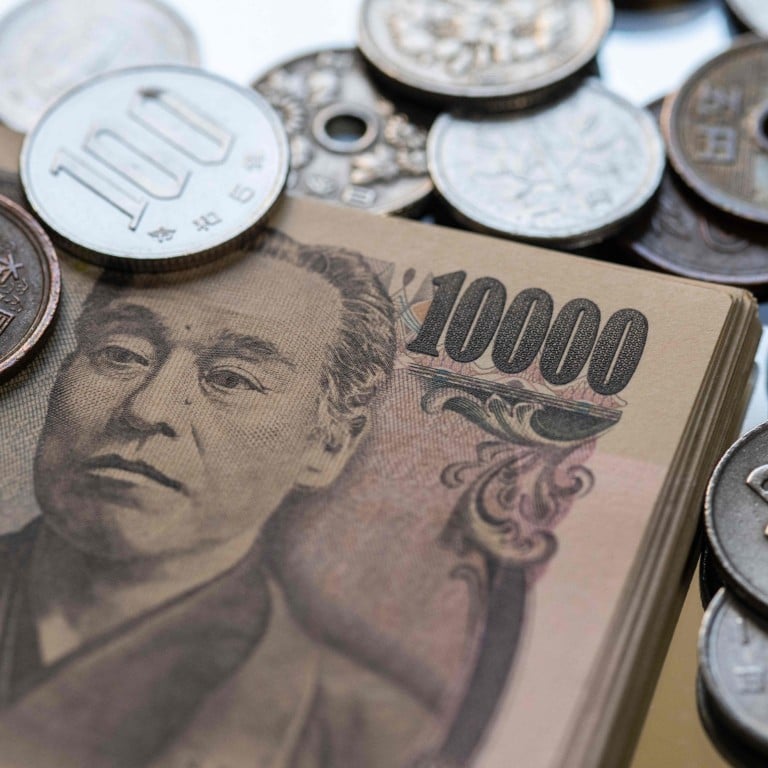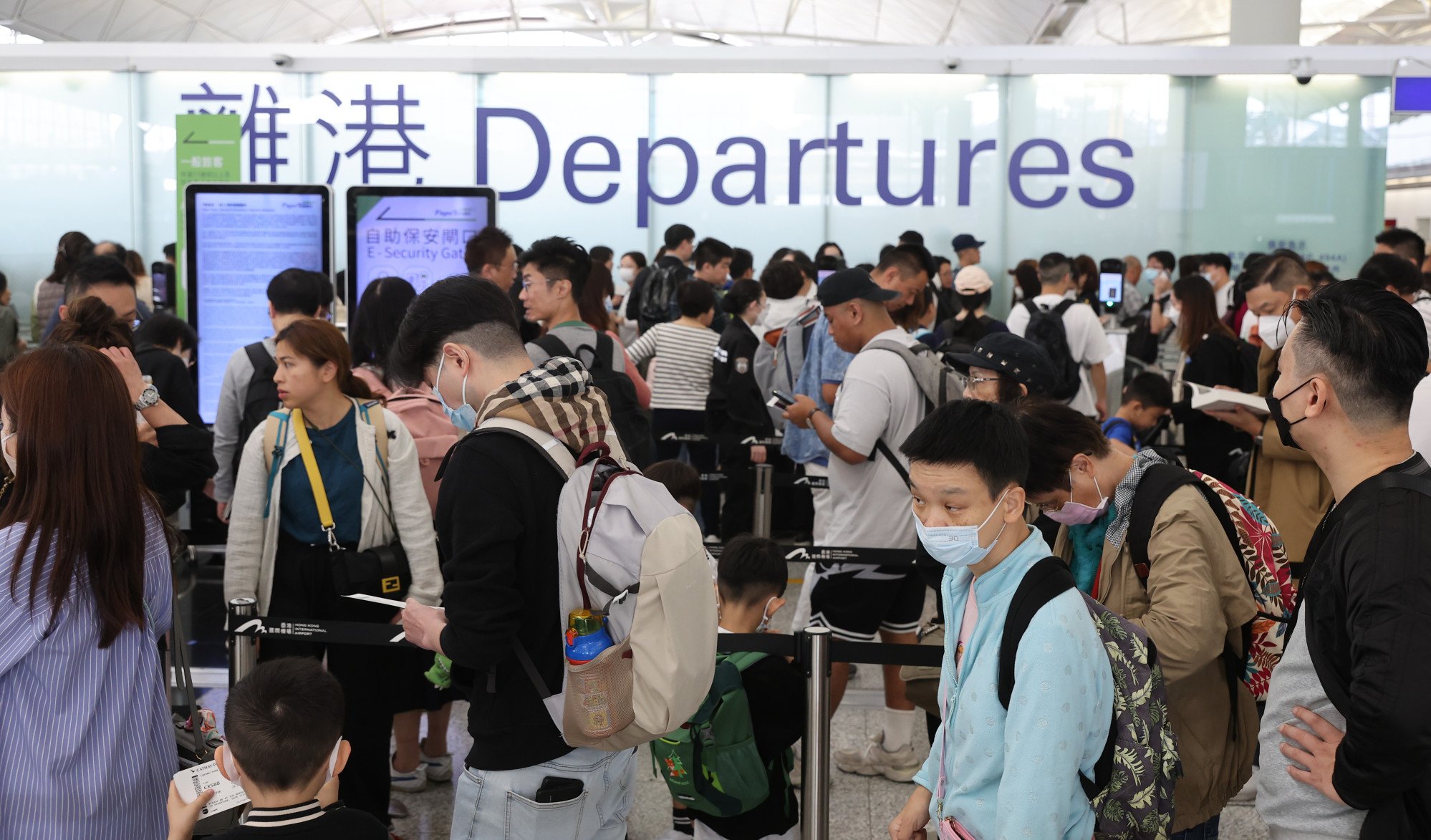
Land of the falling yen could tempt Hongkongers to spend in Japan instead of city as country’s currency hits 34-year low against US dollar
- Warning comes as yen hits 34-year low of 156.82 against US dollar after Bank of Japan held interest rates close to zero
- But city experts said they did not expect the economy to take major hit as the downward trend has been evident for a while
A plunging Japanese yen could further hit spending in the city as more Hongkongers could be tempted to visit the country after its currency hit a 34-year-old low on Friday, retail sector representatives and economists have warned.
But the experts said they did not expect the effects to be drastic as the downward trend in the yen had been evident for some time, although some appealed to the government to step up efforts to attract more tourists from emerging markets.
They were speaking as the yen hit its lowest level against the US dollar in more than three decades after the Bank of Japan held interest rates at close to zero.
The Japanese currency was last at 156.67 to the US dollar, after it briefly sat at 154.97, having hit minutes earlier its lowest level of 156.82 since 1990.

Steve Huen Kwok-chuen, the executive director of city travel agency EGL Tours, said the number of people signed up for tours to Japan had increased by 20 per cent compared with last year because of the yen’s weakness.
He highlighted that the number of people who travelled from the city to Japan in the first three months of the year had exceeded 2.2 million and marked a record high.
Huen added he expected the trend of Hongkongers visiting Japan to persist for the rest of the year.
“Even if the yen appreciates to the level at HK$6, or even HK$7 for 100 Japanese yen, it is still a bargain,” he said.
The Japanese currency at one stage on Friday fell to 100 yen to HK$4.98.
But Huen said tour prices would not be slashed, despite the sinking yen.
“The air tickets and the hotel fees will also rise rapidly due to keen competition,” he explained. “Not only Hong Kong, people from different parts of the world are also flocking to Japan.”
No Easter joy for Hong Kong retailers as trade group warns of tough times
Huen added Japan tours for the summer holidays had just opened for applications and he was optimistic that more people would sign up.
Simon Wong Kit-lung, founding chairman of the Hong Kong Japanese Food and Cuisine Association, said the price of Japanese food did not necessarily come down because of a fall in the yen as cost depended on the price set by importers.
He predicted there would be no impact on the price of Japanese food in Hong Kong.
But retail sector representatives and economists said more attractive prices in Japan could hit stores and the catering trade, although they predicted the impact would not be substantial.
Lawmaker Peter Shiu Ka-fai, who represents the retail sector, said Hong Kong’s currency, pegged to the US dollar, had long stood at a high level compared to some neighbouring countries, which made travelling and spending money elsewhere more appealing to city residents.
But Shiu agreed he did not expect the effects to be substantial as the yen had been weak for a while.
He highlighted Hong Kong’s variety of activities and events, such as fireworks and drone displays, could encourage the public to stay, as well as attract tourists from other places, which would boost spending.
Hong Kong retail sales grow 16.2% in 2023, bouncing back from contraction
Lam Chi-chung, the general officer of the Hong Kong Department Stores and Commercial Staff General Union, said a strong Hong Kong dollar and a weak yen would continue to attract residents to Japan for sightseeing and shopping.
He added the government should boost promotion efforts to attract more tourists from newer markets like the Middle East and African countries to lessen any impact.
Professor Terence Chong Tai-leung, the executive director of the Chinese University of Hong Kong’s Lau Chor Tak Institute of Global Economics and Finance, also predicted a limited impact from Japan’s sinking yen.
“The Hong Kong dollar is currently strong, and the number of outbound travellers exceeds that of incoming visitors,” he said. “But the impact will not be huge.
“Hong Kong is a large economy, which will not be significantly impacted by a limited number of travellers.”
Chong said, despite the weak yen, flight tickets to Japan remained expensive and the number of flights to the country remained limited compared to pre-pandemic levels.
He appealed to Hong Kong businesses to adapt to a changing market to ensure survival, including tapping into e-commerce and expanding their operations to travel destinations popular with Hongkongers.


